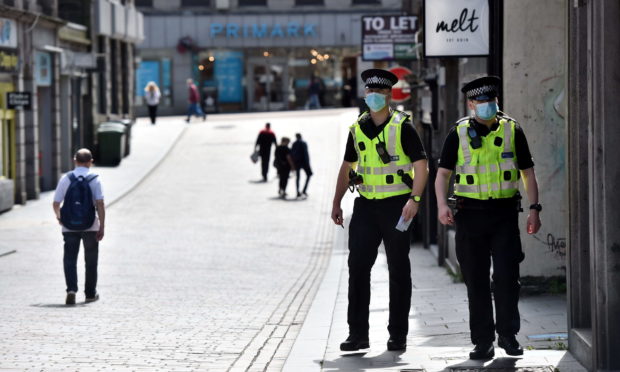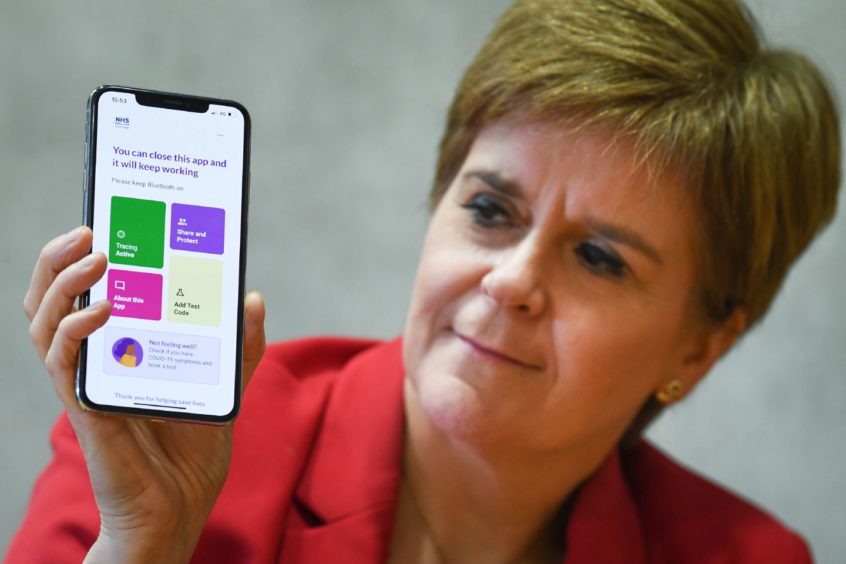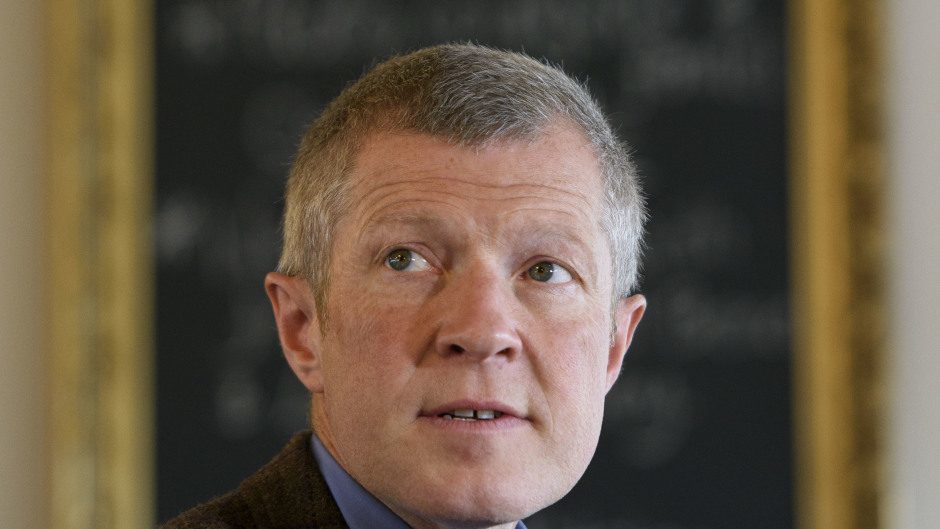Nicola Sturgeon is “considering carefully” whether to introduce nationwide lockdown measures and has been given assurances that access to coronavirus tests will not be restricted in Scotland due to a backlog south of the border.
The first minister confirmed a further 290 positive tests had been recorded overnight in Scotland, the highest figure since the beginning of May, and warned the R number – the average number of people infected by each person – could be as high as 1.4.
The issue has been compounded by a logjam in the UK’s Lighthouse Lab testing network, which means some swabs taken last week in Scotland have still not been reported and contact tracing has been brought to a standstill in some cases.
Speaking at First Minister’s Questions on Thursday, Ms Sturgeon said officials were “considering carefully, on an ongoing basis, whether any further restrictions will be necessary for all or parts of the country to help in the suppression of the virus”.
Her comments came as a YouGov poll found almost two thirds of Scots would support a second national lockdown if coronavirus cases continue to rise. The survey found 29% were strongly in favour and 34% somewhat supported the idea.
The SNP leader also branded house parties, which have been at the forefront of concerns about community transmission, “a danger to life” as she was challenged on whether tougher fines could be imposed on those who flout lockdown rules.
Current restrictions mean any gatherings should be limited to a maximum of six people from no more than two households, while in several council areas tougher rules mean people are barred from entering other homes.
Police Scotland responded to 405 house parties last weekend, so that demonstrates that we still need to get the seriousness of this issue across to people.”
First Minister Nicola Sturgeon
Police have the power to break up house parties with more than 15 people, and courts can impose a fine of up to £5,000 for coronavirus rule breaking – or higher depending on the charge.
Asked whether she considers it “appropriate that tougher fines should be implemented for the hosts of house parties”, Ms Sturgeon said it was a “legitimate issue” and the Scottish Government would keep it “under review”.
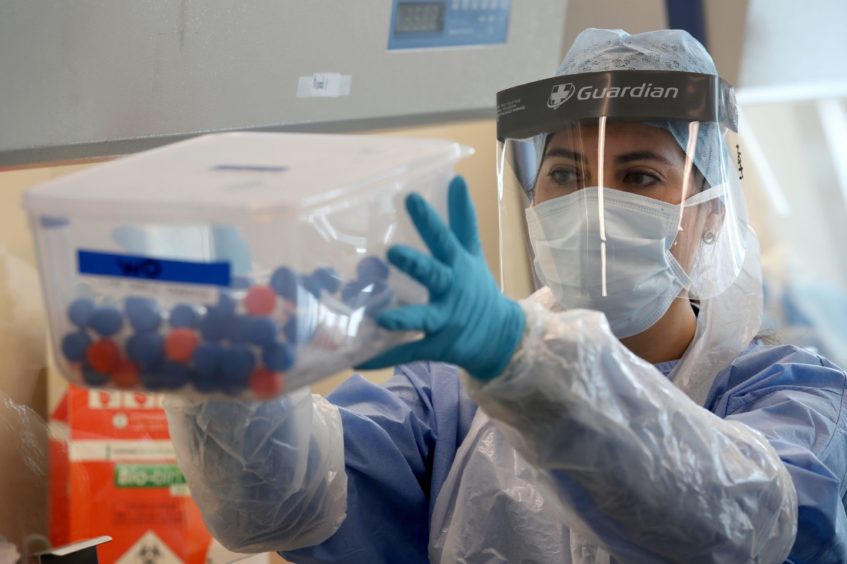
“I understand that young people want to socialise and see their friends, there is nothing more natural than that, but house parties right now are a danger, they are a danger to people’s health and, frankly, they are a danger to life,” she said.
“Police Scotland responded to 405 house parties last weekend, so that demonstrates that we still need to get the seriousness of this issue across to people.”
The first minister said she had been given assurances that access to testing will not be restricted in Scotland, despite ministers south of the border warning some people with Covid-19 symptoms in England may have to wait longer.
The UK Government’s Lighthouse Lab network, which is responsible for a significant share of Scotland’s testing regime, has come under increasing pressure following the return of full-time education in England this month.
Ms Sturgeon was challenged on the issue by Scottish Labour leader Richard Leonard, who said the testing system in Scotland had also been beset by challenges and delays.
The first minister insisted the test and trace system was working well but accepted some people had been asked to travel beyond their home town or city to access a test.
“Demand will be variable and it is not right to say the system is not working in Scotland,” she said.
“We have a capacity constraint in the UK part of the laboratory system that we are working to address and we are seeing improvements in that but we have to see those sustained.
“It makes sense we co-operate with the UK. I don’t want anyone to get anything other than the impression that they should book a test when they have symptoms.”
Meanwhile, Ms Sturgeon was urged to do “whatever it takes” to allow more people to visit relatives in care homes during the coronavirus pandemic.
Scottish Liberal Democrat leader Willie Rennie made the plea as he raised the case of Cathie Russell, whose visits to her mother are limited to 30 minutes a week, with both parties separated by a plastic screen throughout.
“Cathie’s mother comes into contact with multiple carers every day yet the most important carer of all, her daughter, is left outside – and this is happening to hundreds of people every day,” he said.
“So extend testing, give her PPE, check her temperature, make her self-isolate. Do whatever it takes to keep them safe but let her in.”
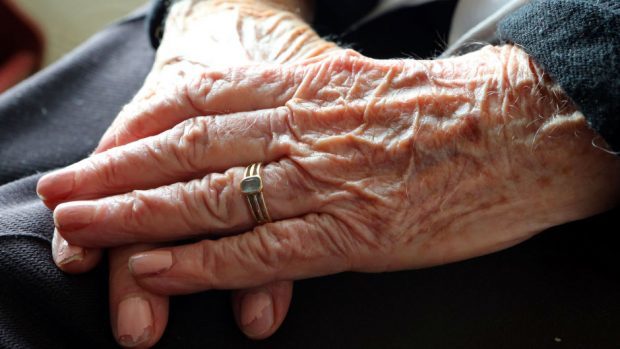
Labour health spokeswoman Monica Lennon also pressed the first minister on the “hidden catastrophe” that the psychological and emotional impact of separating care home residents from their loved ones could bring.
The first minister said decisions over access to care homes during the pandemic had been “really difficult” and stressed the need to strike a balance between keeping elderly residents safe and allowing people to see their loved ones.
“We know that visiting is a fundamental part of the health and wellbeing of those who live in our care homes,” she said.
“But these restrictions are ultimately in place to try to help us protect care home residents and save lives.
“And it is important we continue to recognise the risks of communal living, the risks of infections getting into care homes, as we take these decisions.”
